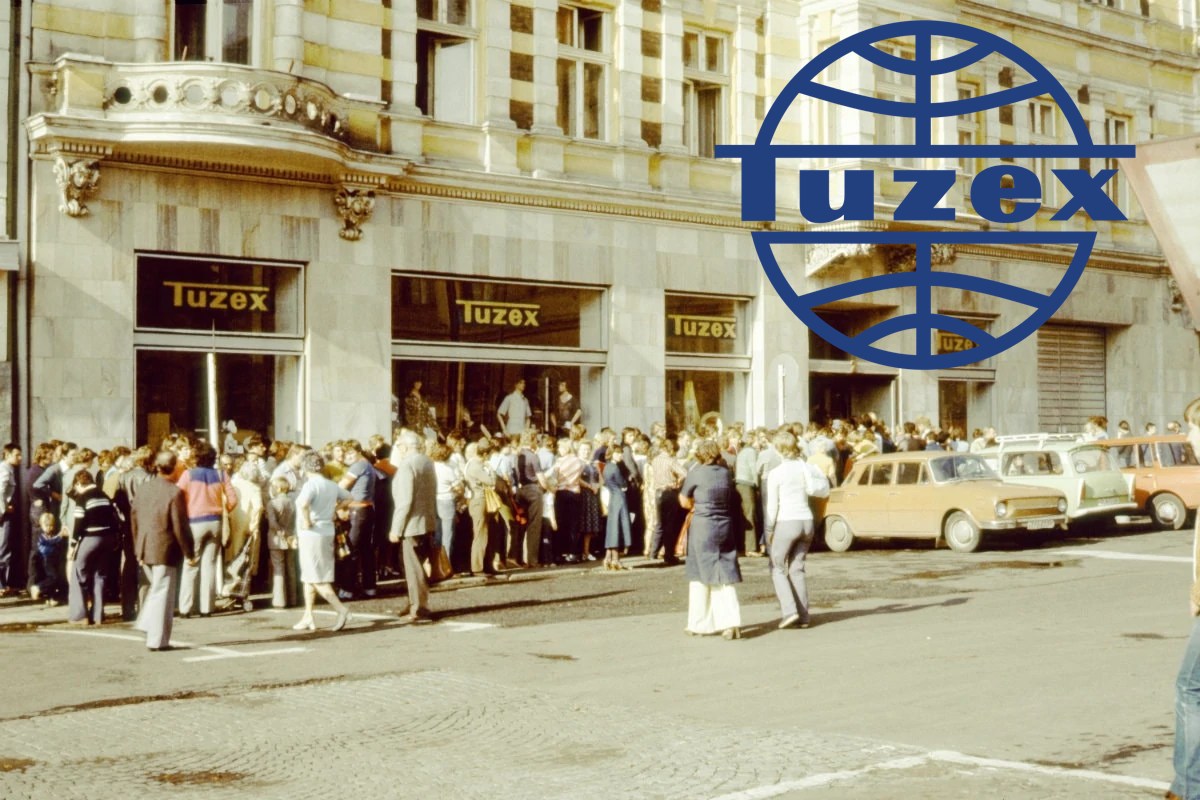MARCH 24, 2022 – The loss of my pants in Budapest led to an instructive, firsthand “Communist consumer” experience in Prague—and something more “to write home about.” Yet, even without the experience of trying to buy a pair of pants in a storied European capital, I could readily see how flawed Communism was in delivering something even more basic than clothing: food.
As I wrote to my family, “A most telling characteristic of the socialist economies is the queue. Standing in a queue—for food, for clothes, for anything—is an unavoidable aspect of life here. Food lines are especially bad and often the quality of the produce is substandard once you advance to the buying spot. Worse yet, supplies are limited. You can wait an hour for potatoes and be informed they’ve ‘run out.’ Interestingly, the people never seem impatient. They’ve become so accustomed to ‘queuing up,’ they don’t complain. They just plan for it. These queues remind me of yet another aspect of American life most of us take for granted. Not only do we have better products in the West and more of them, but we also have time. And how we waste it!”
One day, Magda took me on a “shopping trip” for replacement pants. My letter home described some of the half-day venture: “Magda first took me to ‘Māj,’ a four-floor department store, dubbed the ‘Macy’s of Praha.’ What an experience! The store looked like it was going out of business. Before hitting the men’s department, we toured the appliance department, sporting goods section, and shoe store. The place was a cross between Woolworth’s bargain basement and an East German dump. As you might expect, I couldn’t find a suitable pair of trousers, either.”
We decided to try a Tuzex store in Prague—a “hard currency” outlet offering Western consumer goods . . . provided you could pay with convertible currency*. My letter captured the scene: “The place was jammed with Czechs who had, by devious means, acquired dollars or deutschmarks. The hot item was jeans. When the clerk learned I was American, she called me to the front of a two-hour line. In five minutes I had a pair of ‘hot’ jeans. Price: $25.00.”
In 1981, that was no bargain. On the black market, however, I could’ve easily sold the jeans for $125.00 worth of Czech crowns at the official exchange rate. But I didn’t sell them. I needed a pair of pants. And I didn’t need to be thrown in prison or stuck with an exorbitant fine (payable, of course, in hard currency) for engaging in illegal trade.
I mentioned to Magda that nearly everyone in Prague was well attired. Her explanation appeared in my letter: “[She] told me it was very important to these people to look their best. She added, unnecessarily, that it requires lots of time and savings to acquire decent clothing.”
__________________________
*It was illegal for ordinary Czech citizens to hold convertible currency. Communist apparatchiks (active Party members)—citizens who, in Orwellian terms, were “more equal” than everyone else—were exempt. Westerners like I were especially welcome, since the regime needed and wanted all the “real money” that could be commandeered. Each member of the Soviet Bloc—and the USSR itself—had its own version of the “hard currency” store. If ordinary Czechs spent their contraband currency inside a Tuzex store, the currency ban wasn’t enforced. The authorities looked the other way, since everything that went into the Tuzex till was consigned to government coffers—as opposed to the pockets of black marketeers. The government desperately needed hard currency to trade with nations outside the Soviet Block. As my hosts pointed out, this whole operation revealed a glaring contradiction in the Communist system.
(Remember to subscribe to this blog and receive notifications of new posts by email.)
© 2022 by Eric Nilsson
